The Riedel Wine Glass Seminar
or…Does the Wine Glass Really Make a Difference?
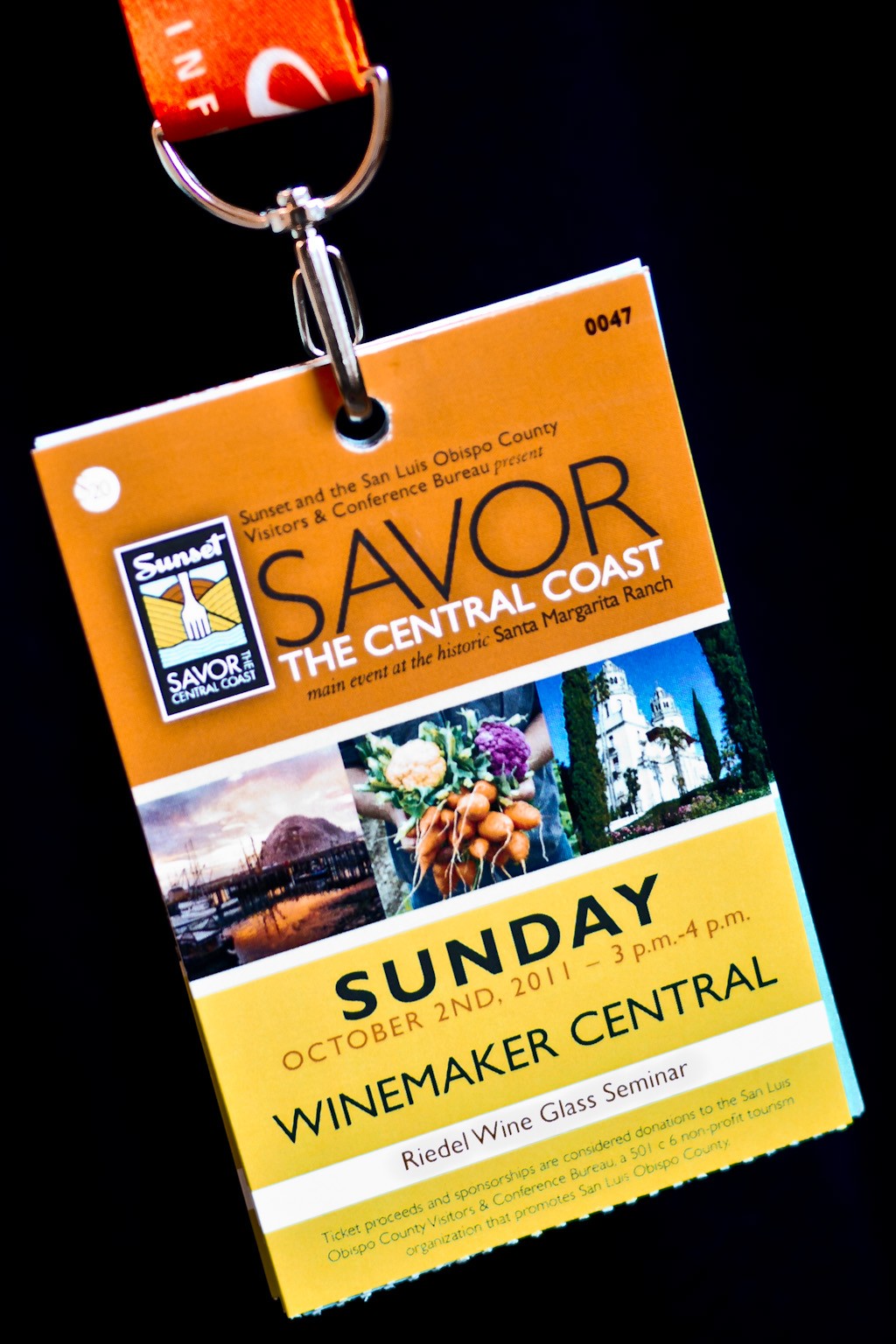 Sunset Magazine's Savor The Central Coast event wrapped up last weekend and it was indeed a glorious four day celebration of Food, Wine and all else California's Central Coast has to offer. There were many highlights for me, the top perhaps being driving a 2012 Infiniti G37S Convertible on a test track at madman speeds! The highlight I want to talk about here however is the Riedel Wine Glass Seminar.
Sunset Magazine's Savor The Central Coast event wrapped up last weekend and it was indeed a glorious four day celebration of Food, Wine and all else California's Central Coast has to offer. There were many highlights for me, the top perhaps being driving a 2012 Infiniti G37S Convertible on a test track at madman speeds! The highlight I want to talk about here however is the Riedel Wine Glass Seminar.
Surely all wine lovers know the Riedel name ― they call themselves The Wine Glass Company for a reason. We learned that the company makes several hundred different glasses for every wine imaginable plus those dedicated to other drinks, particularly spirits and water. And thus, the meat of the seminar is to convince the audience that glassware does indeed impact the quality of the wine. Specifically, that individual wine varietals benefit when drunk from a varietal specific wine glass. In the end, they succeeded, mostly.
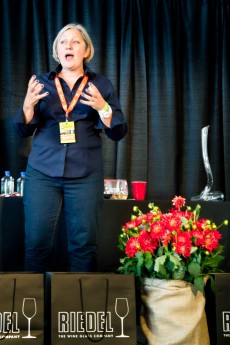 Our host Sylvie Laly, began the session with the basics: the name of the company Riedel (rhymes with needle), the history of the company (traditionally ornamental glass, recent change of focus to wine) and an introduction the company's odd internal motto ‒ Money Doesn't Stink. This motto is the explanation given as to why the company is happy to design glassware for obscure wine varietals and over the top decanters; Money Doesn't Stink, i.e. if people are crazy enough to pay for these things, we're happy to make them. This struck me as bizarre as we were all sitting in a seminar which was presumable trying to convince us of the need to buy obscure glassware. But I digress.
Our host Sylvie Laly, began the session with the basics: the name of the company Riedel (rhymes with needle), the history of the company (traditionally ornamental glass, recent change of focus to wine) and an introduction the company's odd internal motto ‒ Money Doesn't Stink. This motto is the explanation given as to why the company is happy to design glassware for obscure wine varietals and over the top decanters; Money Doesn't Stink, i.e. if people are crazy enough to pay for these things, we're happy to make them. This struck me as bizarre as we were all sitting in a seminar which was presumable trying to convince us of the need to buy obscure glassware. But I digress.
Each of the seminar participants were given a set of five O-Series glasses. There was one glass for each of five wine varietal types. Throughout the seminar, Ms. Laly led us through smelling and tasting different wines in the different glasses. For example, we started by appreciating the bouquet and flavor of a local Talley Chardonnay in the the varietal correct Montrachet Chardonnay glass. We then transferred the wine to an empty plastic Joker cup to find that the aroma was completely gone and the flavor nearly so. The wine then went into a Riesling/Sauvignon Blanc glass where we found the wine to be a bit alcoholic and sharp. Back the wine went into the correct glass where its full glory returned.
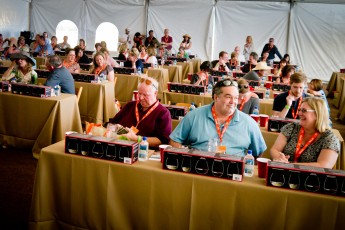 Wine after wine we followed the process and to the delight of the audience the differences were striking. As for me, I must confess that I have attended the same Riedel glass course a year ago so I was paying extra attention this time. There is no question that the shape of the glass appeared to change the reception of the wine's fragrance and flavor, but the procedure can be misleading. To begin with, we are always introduced to the new wine in the correct glass. Thus our first exposure, when our senses are most sensitive, is associated with the correct glass. As I'm sure many of the readers have experienced, the first glass of wine (or any beverage for that matter) is the most strongly flavored and usually the best. When we did ultimately return the wine to the correct glass Ms. Laly immediately exclaimed that the full scents and flavor had suddenly returned. Well… the scents and flavor did seem to have returned but I must say they were not as vibrant as during the first exposure.
Wine after wine we followed the process and to the delight of the audience the differences were striking. As for me, I must confess that I have attended the same Riedel glass course a year ago so I was paying extra attention this time. There is no question that the shape of the glass appeared to change the reception of the wine's fragrance and flavor, but the procedure can be misleading. To begin with, we are always introduced to the new wine in the correct glass. Thus our first exposure, when our senses are most sensitive, is associated with the correct glass. As I'm sure many of the readers have experienced, the first glass of wine (or any beverage for that matter) is the most strongly flavored and usually the best. When we did ultimately return the wine to the correct glass Ms. Laly immediately exclaimed that the full scents and flavor had suddenly returned. Well… the scents and flavor did seem to have returned but I must say they were not as vibrant as during the first exposure.
This leads me to confirmation bias. Throughout the tastings, we all knew what was expected. People have a funny tendency to believe what they expect to be true, even when not confirmed by fact or in this case their senses. There is a further tendency for people avoid dissent with a group. As the participants are all oohing and ahhing, those who might be skeptical may succumb to group-think bias. So, it should be no big surprise that a session taught by an employee of the worlds largest specialty wine glass company should result in all being convinced of the magic of the glasses.
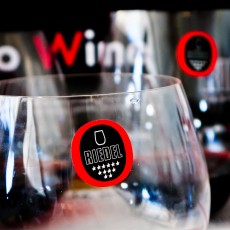 After all of that said however, I will confidently say that the shape of the glass does indeed affect the perceived quality of the wine; my biased opinion for what it's worth. The difference may not be as profound as Riedel's representatives suggest, but I believe there is in fact a difference.
After all of that said however, I will confidently say that the shape of the glass does indeed affect the perceived quality of the wine; my biased opinion for what it's worth. The difference may not be as profound as Riedel's representatives suggest, but I believe there is in fact a difference.
This is obvious when considering a completely inappropriate glass, such as one with straight walls or a rim too a large. In those cases the scent of the wine escapes leaving nothing in the glass. It makes sense to match your glass to the wine in a broad way. However, as you attempt to differentiate the subtleties between dozens of varietal specific glasses, you will quickly find diminishing returns.
For my money I believe there are four essential wine glasses:
| The Glass | The Wines | |
|---|---|---|
 |
Burgundy 6416/07 |
Red Burgundy, Pinot Noir, Champagne, Beaujolais, Delicate Reds |
 |
Bordeaux 6416/0 |
Red Bordeaux, Cabernet Sauvignon, Merlot, Syrah, Meaty Reds |
 |
Chablis (Chardonnay) 6416/05 |
Chardonnay, Viognier, Rhone White Blends, Lush Whites |
 |
Sauvignon Blanc 6416/33 |
Sauvignon Blanc, Grenache Blanc, Alsatian Whites, Sharp Whites |
(The above glass references are to Riedel's Vinum series wine glasses, links to Amazon)
Lastly I'll mention two tips we learned to care for your Riedel glassware. When it is said that the glasses are dishwasher safe, keep in mind that the dishwasher should be otherwise empty and should be run with no detergent. And if you do hand-wash (and you should), never, ever, wash your glasses after 10pm — glasses are just more fragile after that time for some reason.
So what do you think? Is this whole varietal specific glassware thing poppycock? Prefer to drink out of a tumbler? Or is there a place for a handful of choice glassware? And I hate to bring it up, but what do you think of the stemless glasses? Let us know in the comments!
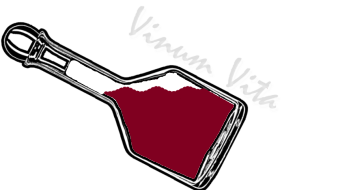


 October 6, 2011
October 6, 2011 











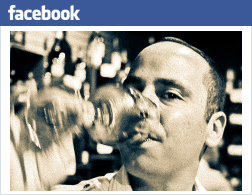




.jpg&w=50&h=50&zc=1&q=90)
